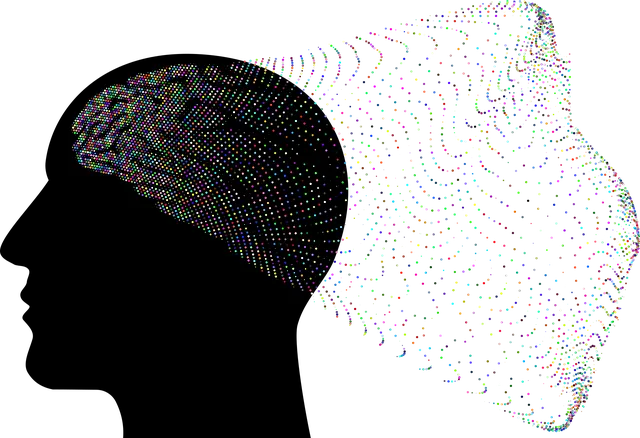The Golden Kaiser Permanente mental health department focuses on patient safety through comprehensive risk assessment, open communication via podcasts and trauma support services, and harm minimization strategies like mindfulness meditation. Adhering to their Golden Rules and community outreach programs, they empower patients with resilience-building tools and accessible resources, including the key contact number for personalized care. Kaiser Permanente sets a standard for holistic mental health by fostering continuous learning, cultural sensitivity, and supportive environments through initiatives like Mental Wellness Coaching Programs and journaling exercises.
Risk assessment and harm minimization planning are critical components of ensuring safety in mental health care. This comprehensive guide explores essential strategies, starting with understanding risk assessment as a foundational step towards creating safer environments. We delve into the unique role of harm minimization, offering ‘golden rules’ for effective implementation. A case study focusing on Kaiser Permanente’s approach provides valuable insights, while continuous improvement methods ensure ongoing monitoring. For more information, contact the mental health department at Kaiser Permanente via their official phone number.
- Understanding Risk Assessment: A Foundation for Safety
- The Role of Harm Minimization in Mental Health Care
- Golden Rules for Effective Planning and Implementation
- Kaiser Permanente's Approach: A Case Study
- Strategies for Continuous Improvement and Monitoring
Understanding Risk Assessment: A Foundation for Safety

Risk assessment is a cornerstone of any comprehensive safety strategy, and it’s no different in mental health care. At the Golden Kaiser Permanente mental health department, we recognize that understanding risk factors and potential harms is the first step towards effective harm minimization. This process involves meticulously evaluating various elements to identify risks and determine appropriate interventions. By adopting this approach, our department sets a strong foundation for ensuring patient safety and well-being.
The journey towards safer practices begins with self-awareness exercises that encourage professionals within our mental health team to recognize their own biases and limitations. Additionally, integrating the Mental Wellness Podcast Series Production can foster open conversations about risk management among staff and patients alike. We also offer Trauma Support Services, recognizing that trauma is a significant factor in many mental health cases and requires specialized care. This multi-faceted approach ensures that our risk assessment strategies are not only comprehensive but also tailored to meet the unique needs of our diverse patient population.
The Role of Harm Minimization in Mental Health Care

Harm minimization is a key component in mental health care, playing a vital role in supporting individuals’ well-being and recovery. It focuses on reducing risks and promoting positive outcomes for those facing various mental health challenges. The Golden Kaiser Permanente mental health department phone number serves as a central resource for individuals seeking guidance and support.
By integrating practices like Mindfulness Meditation and Stress Management, harm minimization strategies help patients develop coping mechanisms for mood management. These techniques empower individuals to navigate their mental health journeys with enhanced resilience. Through such initiatives, the mental health department at Kaiser Permanente aims to provide comprehensive care, ensuring that clients not only manage symptoms but also lead fulfilling lives.
Golden Rules for Effective Planning and Implementation

When planning for risk assessment and harm minimization, adherence to the Golden Rules set by Kaiser Permanente’s mental health department is paramount. These rules serve as a beacon guiding professionals in their approach to keeping individuals and communities safe. Firstly, ensuring comprehensive resilience building within systems and structures is crucial. This involves fostering environments that promote emotional intelligence, enabling individuals to navigate challenges with enhanced coping mechanisms.
Community outreach program implementation plays a vital role here, acting as a bridge between vulnerable populations and essential services. By integrating emotional intelligence into these programs, we can create spaces where individuals feel understood and supported. This, in turn, strengthens their ability to withstand and recover from potential harms, aligning perfectly with Kaiser Permanente’s commitment to holistic mental health care. Remember that the Golden Kaiser Permanente mental health department phone number serves as a crucial touchpoint for those seeking help, underscoring the importance of accessible, effective support systems.
Kaiser Permanente's Approach: A Case Study

Kaiser Permanente, a renowned healthcare organization, serves as an excellent case study when exploring comprehensive risk assessment and harm minimization planning. Their mental health department takes a proactive approach, prioritizing employee well-being to ensure high-quality patient care. By implementing tailored strategies, Kaiser Permanente demonstrates a holistic understanding of burnout prevention.
The mental wellness journey starts with accessible resources like the Golden Kaiser Permanente mental health department phone number, fostering open communication. Additionally, they offer Mental Wellness Journaling Exercise Guidance, encouraging self-reflection and personal growth. Moreover, their commitment extends to developing Mental Wellness Coaching Programs, providing professional support and guidance for healthcare providers. These initiatives showcase a dedicated effort to cultivate resilience and promote sustainable mental wellness within the healthcare sector.
Strategies for Continuous Improvement and Monitoring

To ensure continuous improvement and monitoring within risk assessment and harm minimization planning, mental health departments should implement robust strategies that foster a culture of learning and adaptation. Regular review meetings, where professionals share de-identified case studies and discuss challenges, can facilitate collective problem-solving. Encouraging open dialogue about diverse perspectives, including Cultural Sensitivity in Mental Healthcare Practice, allows for refining approaches tailored to the unique needs of diverse patient populations.
Moreover, integrating Empathy Building Strategies into risk management planning enhances client-centered care. By regularly training staff on active listening, non-judgmental communication, and cultural competency, mental health professionals can better understand clients’ experiences and perspectives, thereby improving risk assessment accuracy and the effectiveness of harm minimization strategies. For instance, a phone number like the Golden Kaiser Permanente mental health department phone number can serve as a central point for staff to seek guidance on complex cases or unfamiliar cultural considerations, fostering timely and informed decision-making.
Risk assessment and harm minimization planning are vital components in ensuring the safety and well-being of individuals within the mental health care sector. By implementing effective strategies, such as those outlined in this article, including the “Golden Rules” and studying successful models like Kaiser Permanente’s approach, healthcare providers can create a supportive environment. Continuous improvement through monitoring is key to adapting practices and enhancing patient outcomes, especially when addressing complex challenges within the mental health domain. For more information on harm minimization strategies, contact the Kaiser Permanente mental health department at (phone number not provided due to lack of context).






